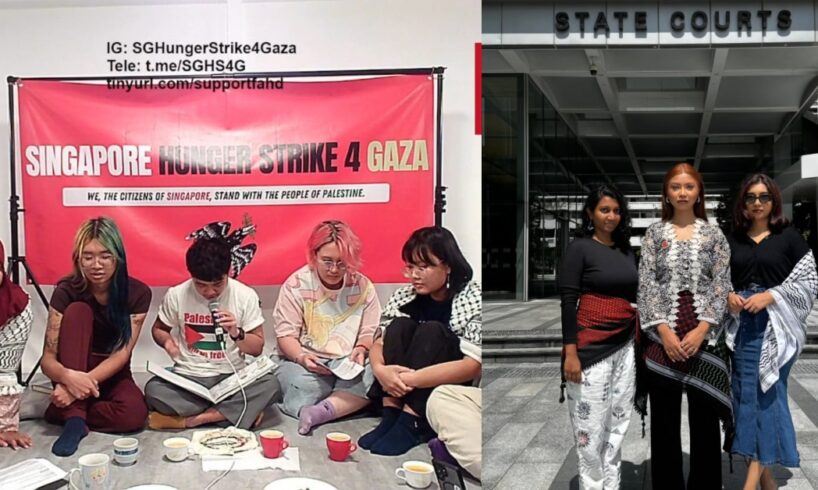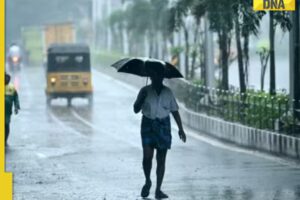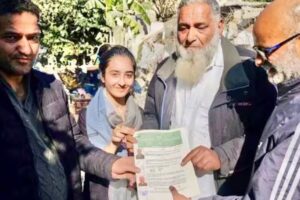
Editor’s Note: All data and quotes in this article are drawn from public sources, including official statements by the Singapore Government, UN agencies, and international media as of Oct 15, 2025, and are attributed accordingly. This article presents information and viewpoints for the purpose of civic and journalistic discussion, and does not endorse any political position, foreign entity, or movement.
A war thousands of kilometres away that affects us
In a hyper-connected world, conflicts thousands of kilometres away no longer feel distant. The devastation in Gaza has become a moral and emotional flashpoint for some Singaporeans, who are grappling with empathy, restraint, and the boundaries of expression in a multiracial, multireligious society. For them, it has become less about politics than about humanity—testing how compassion can exist within a framework of order and national cohesion.
Since the outbreak of the Israel-Hamas War on Oct 7, 2023, multiple pro-Palestinian protests have taken place all around the world. Back home, Singaporeans have responded in different ways—some with empathy, others with detachment, seeing it as a distant geopolitical issue.
This diversity of responses reflects broader questions of civic engagement: how global conflicts intersect with Singapore’s values, and what forms of expression are appropriate in a tightly regulated society. Understanding varying Singaporeans’ responses requires looking at both government actions—through aid, diplomacy, and civic education—and how citizens have mobilised on the ground to express solidarity with Palestine.
The government’s approach: principle, pragmatism, and public order
Image Credit: Ministry of Foreign Affairs
Singapore has been dubbed a “friend of all, enemy of none” due to its long-held stance of non-interference in its foreign policy. As such, the country’s position on the ongoing situation in Gaza is guided by three principles: humanitarian concern, cautious diplomacy, and national cohesion.
The government emphasises that foreign policy must serve national interests, not partisan or identity-based alignments. Officials have repeatedly stressed that Singapore’s diplomacy aims to be principled yet pragmatic—showing empathy without jeopardising domestic stability.
Moreover, Singapore’s history with the state of Israel dates back to our independence, marked by deep economic and military ties through a special relationship cemented by formal diplomatic relations in 1968. In 2022, total trade volume between the two countries reached US$3.8 billion. These longstanding ties—particularly Israel’s role in helping build the Singapore Armed Forces in its early years—remain a sensitive yet enduring cornerstone of bilateral relations.
As a result, Singapore has been urging both sides to come to a two-state solution while providing humanitarian relief and capacity-building for Palestinians to prepare for statehood, acting as a mediator rather than taking sides. This reflects the country’s preference for engagement over confrontation and the belief that long-term peace must come through dialogue and development rather than unilateral action.
Image Credit: MINDEF
To date, Singapore has delivered 10 tranches of humanitarian aid totalling over S$23 million, including food, medical supplies, and shelter equipment through NGOs like the Rahmatan Lil Alamin Foundation, Singapore Red Cross, and Mercy Relief. These efforts, focused on food, medical supplies, and shelter, are consistent with Singapore’s broader humanitarian commitments worldwide.
Conditional recognition of Palestine, announced in May 2024 and reaffirmed in 2025, reflects Singapore’s careful diplomacy: it will occur only if a legitimate Palestinian government accepts Israel’s right to exist and renounces terrorism, and Israel does not take steps to undermine the two-state solution.
In Parliament, Foreign Affairs Minister Vivian Balakrishnan said that Singapore has consistently affirmed the right of the Palestinian people to self-determination and their own state, as evident from its voting record in the UN. In 2024, the country also voted in favour of several resolutions that expressed support for Palestine’s admission as a UN member and affirmed Palestinian’s right to self-determination.
Image Credit: Channel News Asia
Since last year, the Ministry of Education has integrated the Gaza conflict into Character and Citizenship Education (CCE) lessons at home to help students approach global crises with empathy, critical thinking, and sensitivity to diversity.
Then-Education Minister Chan Chun Sing stressed the importance of helping students process information and emotions without assigning blame. This move marks one of the few times Singapore has woven an ongoing international conflict into its moral education curriculum—signalling recognition that global events shape national consciousness.
The conflict also came to the forefront of Singapore’s politics during the Apr 2025 general elections. The opposition Workers’ Party included recognition of Palestine in its manifesto, while Prime Minister Lawrence Wong condemned former NMP Calvin Cheng’s social media post defending Israel’s military actions. This politicisation of Gaza marked a rare moment when foreign conflict seeped into local electoral discourse, showing how the handling of foreign issues can resonate domestically.
According to Acting Minister-in-charge of Muslim Affairs Associate Professor Faishal Ibrahim, the government recognises the diversity of views among citizens. However, it notes that sensitive topics like Gaza carry the risk of heightening communal tensions and triggering identity-based politics, potentially threatening Singapore’s social cohesion.
He emphasised that the government continues exploring ways to engage Singaporeans constructively in support of Palestinians, while avoiding division and violence. “In Singapore, foreign policy hinges upon the national interests of a multiracial, multireligious Singapore within a Southeast Asia context,” he added.
Recently, in Sept 2025, Singapore has also reiterated that it will not be “held hostage” by its defence ties with Israel. While condemning Israel’s military actions and supporting aid, but not cutting ties, it continues to prioritise neutrality and social cohesion. Singapore officials have said this approach ensures consistency with the country’s long-standing principle of engaging all partners, regardless of global tensions.
Grassroots response: civic action, humanitarian work, and scholarships
While the government navigates diplomacy, ordinary Singaporeans have expressed solidarity in diverse ways.
At a Lianhe Zaobao–Berita Harian roundtable dialogue convened on Sept 9, participants emphasised that empathy should transcend borders. Some highlighted the moral imperative to act: “Emotions are what make us human—the question is how we channel them productively,” Nanyang Technological University (NTU) Associate Professor of Political Science Walid Jumblatt Abdullah said.
Others reflected on Singapore’s international obligations. “If countries can willy-nilly break international rules, it puts Singapore in a more precarious state,” noted political observer and NTU lecturer Dr Felix Tan.
These conversations suggest that for many Singaporeans, concern over Gaza also reflects anxiety about maintaining a rules-based international order that small states like Singapore depend on.
Campus and civic activism
Singaporean campuses have become sites of discussion and occasional controversy. In Mar 2024, posters on the NTU campus that illustrated the university’s alleged funding of Israel’s war in Gaza sparked debate and a police probe.
In Jan 2025, National University Students (NUS) students held a memorial event at NUS and called for Singaporean universities to reconsider their ties with Israeli institutions. Six people were later investigated by the police for holding a public assembly without a permit.
Beyond campus grounds, civic activism has also taken shape. In Feb 2024, three women who, in a group of about 70 people, delivered letters on the Palestinian cause to the Prime Minister’s Office at the Istana, calling for government action. They were charged by police under the Public Order Act for organising a procession in a prohibited area.
As a result, discussions have taken place over social media about how civic expression can remain within legal limits while allowing for humanitarian advocacy. These incidents highlight tensions between civic expression and maintaining order, which has come to tread a delicate line in Singapore—and define much of the Gaza discourse locally.
Humanitarian efforts and scholarships
Many Singaporeans have also channelled compassion into humanitarian work. Social activist Gilbert Goh’s Love Aid Singapore has raised over S$5.3 million from the public since 2023—funding soup kitchens, clinics, and rehabilitation for amputees.
On the other hand, Dr Ang Swee Chai, an orthopaedic surgeon and co-founder of Medical Aid for Palestinians (MAP), has also provided medical supplies and long-term healthcare support, advocating for the rights and dignity of Palestinians living under occupation or as refugees. Such initiatives reflect a growing interest among Singaporeans in contributing to humanitarian causes abroad while remaining independent of state policy.
Education has also been a focus.
In 2024, a grassroots movement raised over S$510,000 through the Palestinian Scholarship Initiative (PSI) to support Palestinian students in Singapore. This citizen-led effort evolved into formal support, with scholars now pursuing postgraduate and undergraduate studies at NUS, Singapore University of Social Sciences, and the Singapore Institute of Management. PM Lawrence Wong lauded the cause and highlighted that it “complements the government’s efforts.”
Organisers described it as an apolitical gesture of education and empowerment—offering long-term assistance beyond immediate relief. These ground-up efforts highlight how humanitarianism has become a powerful avenue for Singaporeans to provide aid in times of crises.
Moral agency and calls for safe spaces to discuss political issues
Image Credit: Vulcan Post
Acts of solidarity—from hunger strikes to scholarship programmes—have prompted reflection on Singapore’s civic landscape. Some citizens have called for safe spaces where people can discuss international issues without fear of investigation.
Recently, many Instagram pages showing solidarity with Palestinians have popped up in Singapore and garnered a strong following. This includes @sgacadboycott and @sgpforpalestine48, each having amassed thousands of followers.
It can be noted that younger Singaporeans increasingly use digital platforms to express empathy through art, research, and storytelling rather than street activism—adapting civic expression to local realities.
As Audrey Yang, a member of the PSI and participant at the Lianhe Zaobao-Berita Harian roundtable dialogue, put it, Singapore should not “hide behind being small.” She called for recognising the State of Palestine, ceasing to display Israeli arms at the Singapore Airshow and National Day Parade, and allowing peaceful acts of solidarity.
Her comments reflected a sentiment among some younger Singaporeans that small states can still take stronger moral positions within diplomatic limits. However, officials and analysts have cautioned that any symbolic moves must be weighed carefully to avoid unintended diplomatic repercussions.
Gaza’s humanitarian collapse and Singapore’s reflection
Image Credit: Lianhe Zaobao and Berita Harian
Since Mar 2025, the UN reported that Israel had blocked aid from entering Gaza while food trucks lay waiting at the borders for more than two months, until international pressure led Israel to allow “minimal amounts” of aid into the war-struck enclave. Israeli authorities said these measures were necessary for security reasons. PM Wong also highlighted that while Singapore has always said that Israel has the right to defend itself, it has “gone too far and its actions have caused a terrible humanitarian disaster.”
Israel also introduced the controversial Gaza Humanitarian Foundation (GHF) led by Israelis and Americans to replace the UN food distribution system. According to UN reports, 100 people were killed every day through shootings at the checkpoints, though Israeli officials have denied responsibility for these incidents.
In late Aug, the UN confirmed that a famine had struck Gaza, claiming it to be a “man-made disaster” that Israeli Prime Minister Benjamin Netanyahu has denied.
Less than a month later, the International Association of Genocide Scholars and the UN Commission of Inquiry also stated there were grounds to believe that alleged acts amounting to genocide may have occurred in Israel’s conduct of war, which Israel has dismissed and called the claims “distorted and false.”
Since Oct 7, 2023, Israel has said that the Hamas attack killed about 1,200 people, while the current official toll by the Palestinian Ministry of Health amounts to more than 67,000 Palestinians killed and more than 170,000 injured. Israeli officials have disputed these figures.
However, an ex-Israeli Defence Forces (IDF) commander shared with the Guardian in Sept 2025 that “more than 200,000 people” had been injured or killed—out of which more than 80% dead were civilians—an estimate that is significant as it is close to the current figures provided by Gaza’s health ministry, which Israeli officials have frequently dismissed as Hamas propaganda.
These developments have renewed global debate over humanitarian responsibility and prompted Singaporeans to reflect on the limits of neutrality.
Several Singaporeans acknowledged that discussing Gaza has also exposed a deeper problem: political disengagement at home. Participants at the roundtable spoke of the need to “expand our circles” and engage even the ambivalent or unaware. They emphasised fostering empathy as a form of civic education while helping Singaporeans understand how global conflicts intersect with domestic society, without getting into heated, unproductive debates.
“Politics affects every part of our lives—once we become comfortable talking about it, everything else will follow,” Dr Walid reflected.
Image Credit: Singapore Hunger Strike 4 Gaza
Most recently, in spite of recent ceasefire talks, a group of Singaporeans from Singapore Hunger Strike 4 Gaza, will hold hunger strikes for three weekends from Oct 11 to Oct 26.
Participants said their actions aimed to “show solidarity” with civilians affected by the conflict and reflect on the war. Their strike demands include calls for Singaporeans to stand in solidarity and appeals to the government to take firmer action to cut diplomatic and economic ties with Israel.
Authorities did not take action against the group but reiterated that any public demonstrations must comply with the Public Order Act.
When interviewed by Vulcan Post, a participant in the hunger strike, Nurul said, “We’re not under the illusion that these hunger strikes will move the state’s heart. What matters is showing that even if some perceive the state as complicit, there are Singaporeans who do not feel the same way.”
Her words, echoed by others, show some younger Singaporeans view neutrality as an insufficient moral response, while others see it as prudence.
As Mardhiyah, an NTU student, said at the roundtable dialogue: “As Singaporeans, we have a lot of access to channels of information. So with that access comes a certain responsibility to act on the knowledge we have about what’s going on around us, even if it’s not in our country. Because as humans, we naturally would empathise with what fellow humans are going through.”
Her view captures a generational shift—where global awareness is seen as compatible with, instead of being contradictory to, Singapore’s civic values.
A mirror of ourselves
Looking back, the Gaza conflict has prompted a quiet evolution in Singapore’s civic identity. On one side lies state pragmatism focused on stability; on the other, a public increasingly aware of global humanitarian issues. Both are driven by the same instinct—to maintain compassion without compromising harmony.
Singapore’s foreign aid, CCE lessons, and support through local charities demonstrate institutional empathy, while citizen-led initiatives—donations, fasting, and scholarships—extend that compassion from the ground up. The question is not whether Singaporeans care, but how they express it responsibly within the country’s unique social framework.
Ultimately, Singapore’s experience shows that compassion and cohesion can coexist. By encouraging informed dialogue, supporting lawful expression, and maintaining humanitarian aid, the country may continue to balance empathy with order—a balance essential for small states navigating a turbulent world.
Audrey reflected that understanding the issue “puts things into perspective,” teaching kindness, empathy, and generosity—qualities essential to maintaining social cohesion.
“Some may not know the full history or politics,” she said, “but they have empathy—and that’s where it begins.”
Featured Image Credit: SG Hunger Strike 4 Gaza/ Wake Up Singapore





